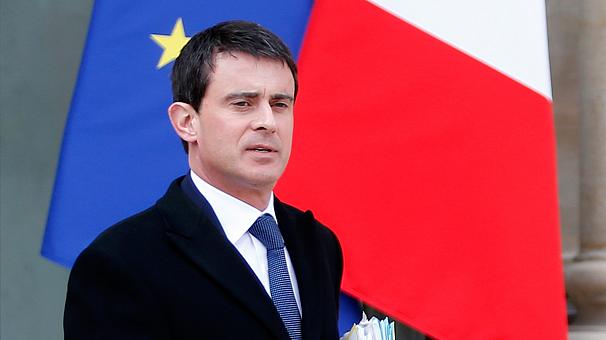Is the future of Europe at stake in Paris these days? The country seems to be unable to rectify its deficit trajectory, endangering the European Union, given its size. The European Commission recently put France under close watch. With a soaring debt at 94 percent of GDP, record unemployment levels and a share of public spending in the GDP at a staggering 57 percent, the country has clearly become the sick man of Europe.
For nearly three years, attempts to reduce deficits had mainly consisted in increasing taxes – including the tax on the rich devised by the ironically much-celebrated Thomas Piketty – further stifling an economy, which was already asphyxiated by overregulation and a bloated public sector. President Hollande recently initiated a change of policy by suddenly caring about businesses, “realizing” they created jobs and growth, and slightly lowering taxes on companies and households.
His new Prime Minister, Manuel Valls, is also supposed to implement a stabilization plan, with “spending cuts” to the tune of €50 billion over three years in order to respect the European commitments of the country. Many commentators and investors see him as having the determination needed to save the country – and indirectly preserve the European project. They might be disappointed…
Not enough, and yet…
In fact, the so-called “spending cuts” will, in the end, not exactly be a reduction of public spending but a reduction in the rate of growth of public spending. Public spending will still increase by 0,1% a year. And 50 billion of that sort – over three years – when the country will borrow 170 billion this year only, is especially not ambitious.
Despite the fact those efforts are modest, many in the majority think they are unbearable and have proposed a softer “plan B”. 41 socialist MPs even abstained during a consultative vote on Mr Valls’ measures at the National Assembly on April 29. Civil servants have announced a major strike on May 15 against spending cuts. (Here is a very good example of the ratchet effect of public spending: when the latter has been increased, it is then very hard for a government to reduce it.)
Whatever vested interests think, these “economies” are not enough in terms of scale – nor in terms of scope.
The measures that the Prime Minister evoked really amount to what the French call “using the wood plane” – trimming here and there, with another pay freeze for civil servants until 2017 for example. But then, in 2017, what will happen? Same thing with pensions freeze. It just generates social frustration without addressing the real issues.
What France needs is a real reform, and not just papering over the cracks, once again. And a real reform would start by redefining the role and functions of the government, with an honest reflection on where civil servants are indeed needed for the “public good”.
A clarification of who pays for what would actually help the French realize the cost of their government: for, politicians have been good at designing complex, non transparent financing schemes, increasing people’s feeling that “public services”, “subsidies” and “welfare rights” are paid for by “other people’s money”.
Only then could follow a rational conclusion on the need for drastic reduction of public spending – and downsizing of what needs to be.
Of course, in order to make sure that the transition goes smoothly and that the private sector can absorb these people, France would need more labor market flexibility – the exact opposite of several recent “protective” measures (such as the new impossibility to work part-time for one employer less than 24 hours a week).
Now, not only are these 50 billions not enough, but it is hard to see how they will be found, whatever the official exposés, especially as the growth forecasts on which the “economies” are based are very optimistic.
Downsizing bureaucracy?
A potentially interesting reform which was announced is the one halving the number of regions in 2017 and the suppression of sub-regional government. However regional politicians welcomed the first measure by saying that… no bureaucrat job would be destroyed. As always, the devil is in the details. And sub-regional governments could disappear only in… 2021.
It feels like Mr Valls, by evoking such emblematic measures, tried to “seduce” the Commission in Brussels and investors. Brussels has already granted twice a delay for respecting commitments on deficits and commissioners are getting impatient. And if France has been lucky enough to borrow at exceptionally low rates – being the second largest European debt market, that luck cannot last forever.
True, Mr
Valls wants the suppression of the “clause of general competence” that enables any layer of government to intervene in whatever field they please and has lead to a waste of taxpayers’ money through duplication of policies. This is a good start – that needs to be complemented by further fiscal accountability. But the latter is not exactly on the agenda.
The highly centralized, corporatist and redistributionist French welfare state, which has created hordes of vested interests, seems to be an obstacle to any sound, democratic and transparent debate and reform.
All in all, Mr Valls’ measures are not touching the sacrosanct “French model”. They only make it even more fragile and costlier for the young generations, postponing the real reforms. Ironically, but sadly, the French are trying to preserve their so-called “solidarity” system but will end up selfishly leaving the bill to future generations – who, of course, don’t vote today.
Photo: EuroNews.com . This piece was first published at http://atlasone.org/2014/04/30/will-mr-valls-save-the-french-titanic-a-lesson-in-non-reform/ and republished here courtesy atlasone.org


